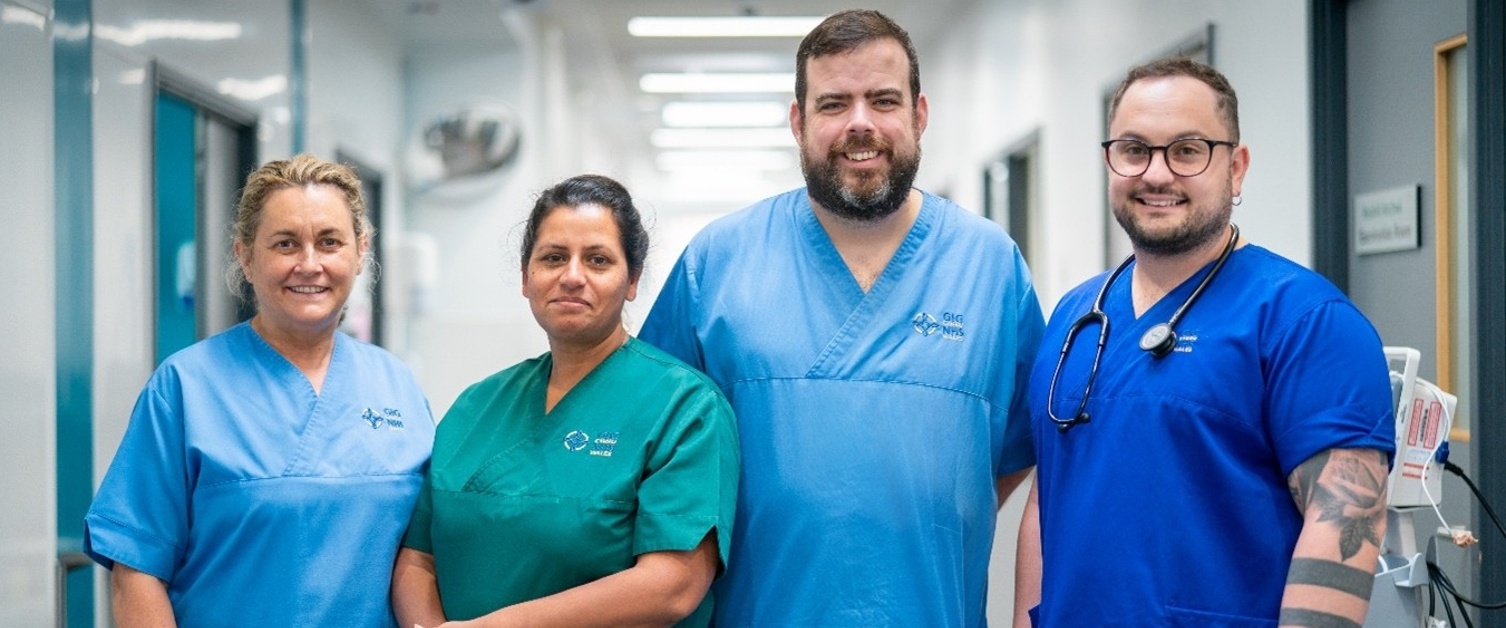Pilot project to explore how Datix Cymru can improve human rights-based care

1 September 2025
A new pilot project is underway to understand the use of restrictive practices in healthcare settings when patients experience an adverse event, aiming to promote a human rights-based and person-centred approach to their care.
The pilot project, which focuses on recording the use of restrictive practices on Datix Cymru, is taking place in Adult Learning Disability Inpatient Services on sites at four local health boards: Aneurin Bevan, Betsi Cadwaladr, Hywel Dda, and Swansea Bay.
Restrictive practice occurs when a person is stopped from doing things that they want to do or makes them do things that they don’t want to do (Welsh Government 2021). The term covers a wide range of practices, including physical restraint, chemical restraint, environmental restraint, seclusion, coercion, and more.
Co-designed with all local health boards in Wales, the pilot project will include testing the new recording functionality within Datix Cymru from 1 September to 31 December 2025. It is a collaboration between NHS Wales Performance and Improvement, Once for Wales Concerns Management Team, and all local health boards in Wales.
As part of the pilot, changes have been made to the Datix Cymru system to provide improved metrics and allow healthcare professionals to capture all reportable adverse incidents. Organisations are required to review the use of restrictive practice to ensure use is lawful, time-limited, and proportionate to the risks being managed.
Aligned with the Welsh Government’s Reducing Restrictive Practices Framework (2021), it is hoped that the findings will contribute towards national standardisation across NHS Wales, enable consistent recording of restrictive practice, and establish baseline data.
The Welsh Government’s framework calls for all care settings to have a system in place to record, monitor and review the use of all restrictive practices. Reducing restrictive practice for patients with a learning disability is a key priority for the Welsh Government, which recognises its impact across all populations. The pilot project will make recommendations on a wider roll-out in all care settings in Wales.
David O’Brien, Chair of the Restrictive Practice Datix Cymru Project Implementation Group, said:
"We’re really pleased to be running this pilot project with Health Boards to improve recording, monitoring and review this important issue in patient safety. Reducing restrictive practice has long been our key focus because it’s central to protecting the rights of the population and has a direct impact on their care experience.
“We’re really encouraged by the collaboration for this project. The insight and feedback we aim to gain by testing these changes will shape how we record restrictive practice across NHS Wales in the future. Getting restrictive practice right is everyone’s responsibility and together we can achieve meaningful improvements for patients.”
Once for Wales Concerns Management Team, part of NHS Wales Shared Services Partnership, provided dedicated drop-in sessions throughout August 2025 to support staff through the changes to Datix Cymru.
Further sessions can be requested by contacting: OnceForWales.CMS@wales.nhs.uk
Judith Lewis, Once for Wales Concerns Management Team, said:
“Having a Once for Wales approach to reporting and managing restrictive practices ensures consistency, eliminates variation and promotes uniformity in data collection and interpretation. The appetite for a Once for Wales approach to understand the use of restrictive practices when patients experience an adverse incident has been encouraging. The aim to promote a person-centred approach to a patient’s care was at the forefront of the changes made to the Datix Cymru system.”